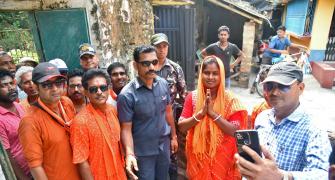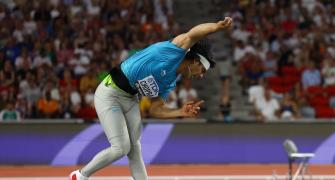There are two terminologies which are frequently used by the courts of law in India: 'Justice delayed is justice denied' and 'justice hurried is justice buried'.
While the demand to fast-track the proceedings in the Delhi gangrape case is being met by the police and the prosecution, it is also said that this trial could be completed within a month.
There are two pertinent questions that would arise out of this trial: the first one being, would a hurried trial cover all aspects of the case?; and the second one being, how long would it actually take before all the appeal provisions right up to the Supreme Court are completed?
Legal experts point out that the main cause for any delay in a trial are the adjournments. If the case is heard on a day-to-day basis without any adjournments, it can well be completed within a month. The prosecution would, however, have to have all the witnesses ready and also ensure that none of them turns hostile.
Moreover, the court hearing this case should ensure that the accused do not seek an adjournment. If none of the accused get a lawyer to defend them, then the court should have an amicus curiae ready on the first date of hearing itself.
At the sessions court, the court should deal only with the facts of the case and not go into the provisions of law too much as this could also cause a considerable amount of delay. The points of law should be addressed by the high court and the Supreme Court when the appeal reaches there.
While fast-tracking a case, the most important thing would be to give the accused an opportunity to present their point of view. This is one of the most fatal aspects of any trial and the lack of opportunity given to either side could end up making the case weaker during an appeal.
The other question is the appeal provisions. Since this is a case of murder and rape the provisions of a death penalty do apply. Hence if the sessions court hands out a death sentence, then it reaches a finality only once the high court confirms the same.
There are many such cases which are pending appeal before both the high court and the Supreme Court. While the operations of a sessions court is largely dependant on the law department of the state (where fast-tracking is concerned), the jurisdictions of the both the high court and the Supreme Court are independent of the government.
Justice Santhosh Hegde, former judge of the Supreme Court, says that appeals could take time, because courts do not take matters out of turn only based on public emotion. The question that could be asked to the prosecution is, why there is special interest only in this case when there are other similar cases pending.
However, Justice Hegde points out that it is very important that this case is fast-tracked and it cannot remain in appeal for long.
"It would be the job of the prosecution to convince both the high court and the Supreme Court to take this matter out of turn. They will have to convince the appellate courts that the matter has to be taken out of turn as they would want a precedent being set in this case which would be binding on all other similar cases. If this point of argument is put forth, then they could convince the courts to take this matter out of turn," he notes.
"If there is a death sentence in this case, then it would go right up to the President of India if the accused seek a mercy petition after a failed appeal before the Supreme Court. In that cse it would be entirely the President's discretion to take this matter out of turn," he says.
The fastest case involving a death sentence was the Ramachandra case in which the sentence was executed in three years. The crime had taken place on May 6, 1993 and he was executed on May 4, 1996. The second fastest execution was Ajmal Kasab's.
The Delhi police is doing everything possible to ensure that the gangrape case is completed in record time. It has a special team of both police personnel and advocates to ensure that this happens and the maximum sentence is awarded.
They have already pieced together the evidence and also have the witness statements ready.
"We will seek the death sentence in this case," an officer in the Delhi police informs.
"Earlier it could have been argued that there was no intent to kill the girl, but the new evidence suggests that they tried to run over the girl which itself shows that there was an intent to kill. This would mean that they were brutal and had planned a murder in order to avoid evidence against them. This is a good point of argument to seek a death sentence," Justice Hegde notes.






